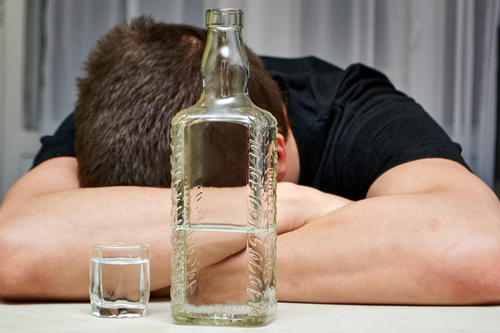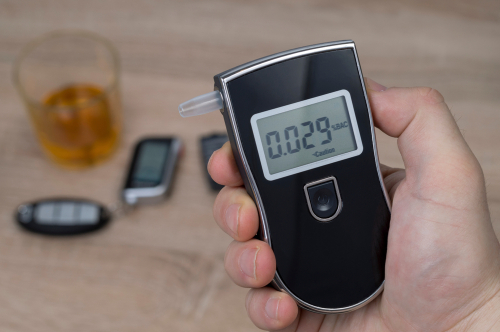How long do alcohol poisoning effects last? If you have ever experienced adverse side effects from heavy alcohol consumption, it is essential to recognize the possibility of alcohol poisoning and understand its associated risks. When drinking alcohol, it can be easy to miss life-threatening signs or know how long they may last. Understanding the consequences of drinking excessive alcohol can save your life or others.
In this article, we will cover what alcohol poisoning is, the symptoms of alcohol poisoning and how long they last, and alcohol toxicity.

What is Alcohol Poisoning?
Alcohol poisoning, also known as alcohol overdose, occurs when a person drinks enough alcohol that parts of the brain can start to shut down. This can be extremely dangerous and can lead to brain damage, organ failure, or death. The amount of alcohol a person would need to ingest for this to occur is based on various factors such as age, gender, drinking experience, and the amount drunk.
When you experience alcohol poisoning from drinking too much alcohol, the symptoms can range from mild to severe. It’s important to understand these symptoms, as not every person who is intoxicated displays these effects.
Symptoms of Alcohol Poisoning
Symptoms of alcohol poisoning can vary from person to person but are generally evident and easily noticeable. The more intense the signs of alcohol poisoning, the more cause for concern. It’s essential to recognize alcohol poisoning symptoms to properly help those in danger of overdose. Some symptoms of alcohol poisoning include:
- Slurred speech
- Confusion
- Seizures
- Vomiting
- Low body temperature
- Poor coordination
- Irregular or slowed breathing
- Clammy skin
- Slowed heart rate
- Death
BAC & Alcohol Toxicity
Alcohol overdose, or alcohol poisoning, happens when an excessive amount of alcohol enters the bloodstream, causing critical areas of the brain responsible for essential life-support functions to shut down. As the blood alcohol concentration (BAC) rises, the effects of alcohol intensify, along with the potential risks. When BAC reaches dangerous levels, individuals may experience blackouts, loss of consciousness, or even death.
According to the National Institute on Alcohol Abuse and Alcoholism, someone who engages in binge drinking or heavy drinking is at risk of alcohol poisoning. Binge drinking can be categorized as excessive drinking in a short amount of time, that raises the blood alcohol level to 0.08% or higher. As the BAC rises, the level of impairment also rises. To keep your BAC levels under 0.08%, it’s important to understand how much to drink at a time.
A standard drink in the U.S. can be defined as containing .6 fluid ounces of pure ethanol. Different alcoholic beverages have different amounts of ethanol in them, meaning you may drink more of one beverage than the other to reach the same blood alcohol levels. The .6 ounces of ethanol translates to 12 fluid ounces of beer, 8-10 fluid ounces of malt liquor, 5 fluid ounces of wine, and 1.5 fluid ounces of distilled spirits.

How Long Does Alcohol Poisoning Last?
The amount of time that the effects of alcohol poisoning lasts depends on several factors. How much alcohol was consumed, the person’s alcohol tolerance, their body composition, and how much food they ate that day are all factors that impact how fast alcohol is metabolized. However, the effects can last from a few hours, depending on the type of alcohol that was drunk. The effects of alcohol poisoning can last even longer if the symptoms are severe and the person needs medical attention.
Alcohol Poisoning Death Rates in the U.S.
As the blood alcohol concentration level rises, the impact of alcohol escalates, increasing the potential for harm. Even slight BAC increases can impair coordination and judgment and induce nausea. Consequently, individuals become more susceptible to falls, car accidents, acts of violence, and engaging in unprotected or unintended sexual activities, thus heightening the risk of injury.
According to the National Center for Drug Abuse Statistics, there were 2,200 alcohol-related deaths in the U.S. in 2019. 76% of those deaths were men between the ages of 35 and 64, putting middle-aged men at the highest risk of alcohol poisoning. In Massachusetts, the alcohol poisoning death rate per 1 million people was 11.3, putting it as one of the states with the highest rates of deaths in the U.S.
As the rate of alcohol poisoning deaths is high, it’s essential to understand not only the risks of alcohol consumption but also how to prevent alcohol poisoning.
How To Prevent Alcohol Poisoning
If you are drinking alcohol, it’s imperative to understand how to prevent alcohol poisoning. Any amount of alcohol consumption can be dangerous, but there are some strategies to utilize to make sure the levels of alcohol consumed are safe. Some of the best strategies to use are:
- Drinking in Moderation: Drinking alcohol in moderation is a great way to limit the risks of alcohol poisoning. Some examples of this can be pacing yourself, alternating alcoholic drinks with nonalcoholic drinks (such as water), and avoiding binge drinking.
- Understanding the Effects of Alcohol: Educating yourself and others on the dangers of alcohol and how it can impact your health can limit excessive drinking. By knowing the impact of alcohol on your body, you can make informed decisions on how much you drink.
- Reducing Peer Pressure: In social settings, it may be challenging to limit your drinking as others may encourage you to drink more. Encouraging individuals to set personal boundaries and not succumb to peer pressure can significantly reduce those who engage in dangerous drinking behaviors.
- Encouraging Treatment and Support: If you notice those around you who are engaging in dangerous drinking habits, it’s important to encourage them to seek professional help. Providing resources for support groups, treatment centers, and counselors can help address alcohol-related problems.
Alcohol Addiction Treatment Options
If you are experiencing heavy drinking or alcohol poisoning effects often, you may be experiencing alcohol addiction. According to the American Psychological Association, alcohol use disorder, or alcoholism, is when an individual has lost control of their alcohol use and is experiencing adverse effects of their alcohol consumption. While there can be many factors that contribute to someone developing an alcohol addiction, there is treatment and support available to help those struggling.
There are many different types of treatment available for alcohol addiction. Receiving medical help from a treatment center is going to benefit individuals the most. Treatment centers can offer alcohol detox, cognitive behavioral therapy, and support groups that assist in alcohol addiction treatment.

Addiction Recovery at East Coast Recovery Center
Many individuals may hide or deny their addiction while silently suffering. While some may be able to overcome their addiction on their own, receiving treatment from medical professionals can help those who need outside help. It may be difficult to seek out medical help for addiction, but it is necessary.
At East Coast Recovery Center, addiction recovery is approached with a comprehensive and individualized approach, providing individuals with the support and resources necessary for their journey toward lasting sobriety. We offer our clients effective and quality treatment therapies while utilizing holistic and evidence-based treatments.
If you or a loved one are experiencing alcohol addiction, substance abuse, or mental health conditions, contact us today to learn more about our treatment programs. We are dedicated to empowering individuals to overcome addiction and reclaim their lives.
Reviewed By A Specialist In The Field

Vernetta received her Master of Science degree in Clinical Mental Health Counseling at Western Carolina University, and she also holds a MA in History and a BA in Theatre Arts. She is trained in Acceptance and Commitment Therapy (ACT) and uses ACT to help clients decrease their suffering and move in the direction of their values. She is passionate about the effectiveness of Experiential Therapy, and has witnessed clients accessing their underlying issues with the aid of creative approaches. She believes in the power and influence of the group process and its ability to propel clients into committed action through the solace of connection. Vernetta is also a HeathRhythms drumming facilitator and enjoys empowering clients to express themselves through rhythm.

Dr. Brady J. Schroer is a psychiatrist in Asheville, North Carolina and is affiliated with Pardee UNC Health Care-Hendersonville. He received his medical degree from Kansas City University of Medicine and Biosciences College of Osteopathic Medicine and has been in practice for more than 20 years.











